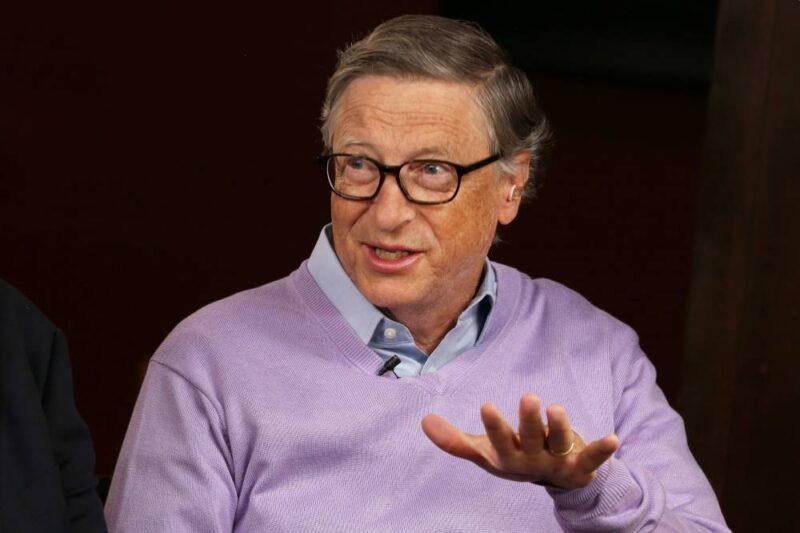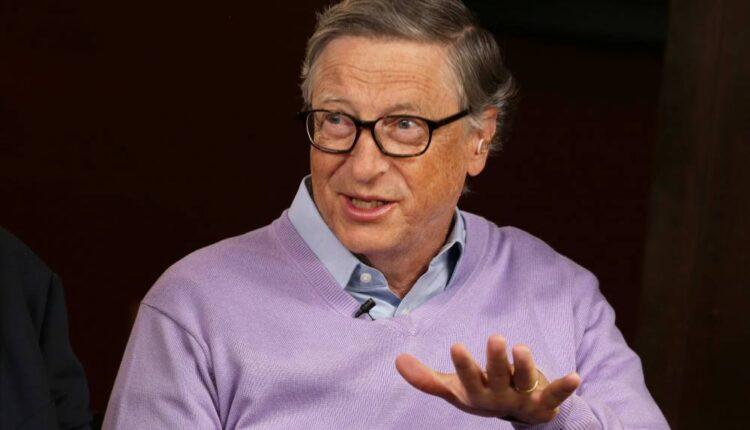
- Gates is hopeful that education can return before a vaccine is widely available, which he expects could take 18 months.
- He said the U.S. could reopen at the end of May at the earliest.
- But he cautioned that the pandemic has permanently changed how people act, and it will take a vaccine or effective cure to convince people to go out again.
Bill GatesGerard Miller | CNBC
Bill Gates thinks schools will be able to resume in the fall, he said in an interview with CNBC's Becky Quick.
"I do think school will be able to resume in the fall," Gates said. "But I don't think this school year there's going to be any significant attendance. You know, maybe in the summer, people will do something special. But that would be very hard to do."
Governments around the world have ordered people to stay home, and elected officials in Arizona, California, Georgia, Michigan, Washington and other states have closed schools for the rest of the academic year.
Some schools have made it possible for students to take classes remotely over the internet, but Gates noted that many students don't have the computers or internet connections necessary for remote learning.
"Most of the private schools, they're used to online, they've made sure all their students have the device and the connectivity," he added. "Different school districts have decided some don't do online learning because it would be unjust in terms of the kids who don't have access. And so that's really a dilemma. There are philanthropists — Ray Dalio, Jeff Bezos and many others — who are trying to fill that gap, you know, get some devices and connectivity out there."
More broadly, the U.S. could open back up at the end of May, Gates said. Before a vaccine is available, he said, countries that have had considerable epidemics must figure out which activities should come back. He suggested that people could probably return to manufacturing and construction, and hopefully education.
"I don't think going to big, say, public sports-type events, that the economic benefit relative to the risks, that will work out until we're back in normal times," he said.
Gates pointed to businesses in China coming back to life and activity returning in South Korea, one of the first countries to face a surge of coronavirus cases.
"How do you draw that line for that period that's gonna be longer than we want it to be?" Gates said. "That — eventually, the government's gonna have to take all the expert input and create a new regime for what's going on that's extremely sensitive to how well it's working through the quick-turnaround, prioritized testing."
He also suggested the economy would not magically revert to the way it was before the pandemic, even once governments decide it's safe to go back to work.
"The behavior of people in terms of wanting to travel or go to events or even go to a restaurant, it's been utterly changed by the concerns about this disease," he said. "No one should think the government can wave a wand and all of a sudden the economy is anything like it was before this happened. That awaits either a miracle therapeutic that has an over 95% cure rate, or broad usage of the vaccine."
A vaccine could take 18 months
Last month, Gates stepped down from the board of Microsoft, which he co-founded 45 years ago, to focus on his health-related work at the Bill and Melinda Gates Foundation, which has committed up to $100 million to respond to coronavirus, Gates has backed a coronavirus test that people can conduct on their own at home, and he has said he would help pay for factories that can produce vaccines.
During the interview, Gates suggested therapeutic treatments for sick people could begin to roll out in four to six months, but it would take at least 18 months to develop a safe and effective vaccine.
"There's an approach called RNA vaccine that people like Moderna, CureVac and others are using, that in 2015 we'd identified as very promising for pandemics and for other applications as well. And so if everything goes perfectly with the RNA approach, we could actually beat the 18 months."
But he noted that vaccines aren't perfect, especially for older patients.
"We don't want to create unrealistic expectations. The efficacy of vaccines in older people is always a huge challenge. You know, it turns out the flu vaccine isn't that effective in elderly people. Most of the benefit comes from younger people not spreading it because they're vaccinated."
He also dismissed the idea that there are a lot of asymptomatic coronavirus cases spreading the disease, which would make COVID-19's actual fatality rate a lot lower than previously reported. "It's very unlikely there's a lot of asymptomatics who never become symptomatic and yet they're infecting people," he said.
Looking at countries with widespread testing like Germany and China, Gates says the fatality rate is around 1% or 1.2% assuming a "fully functioning health system."
WATCH: Bill Gates steps down from Microsoft board
VIDEO4:0504:05Bill Gates steps down from Microsoft boardFast Money
Source: cnbc.com

